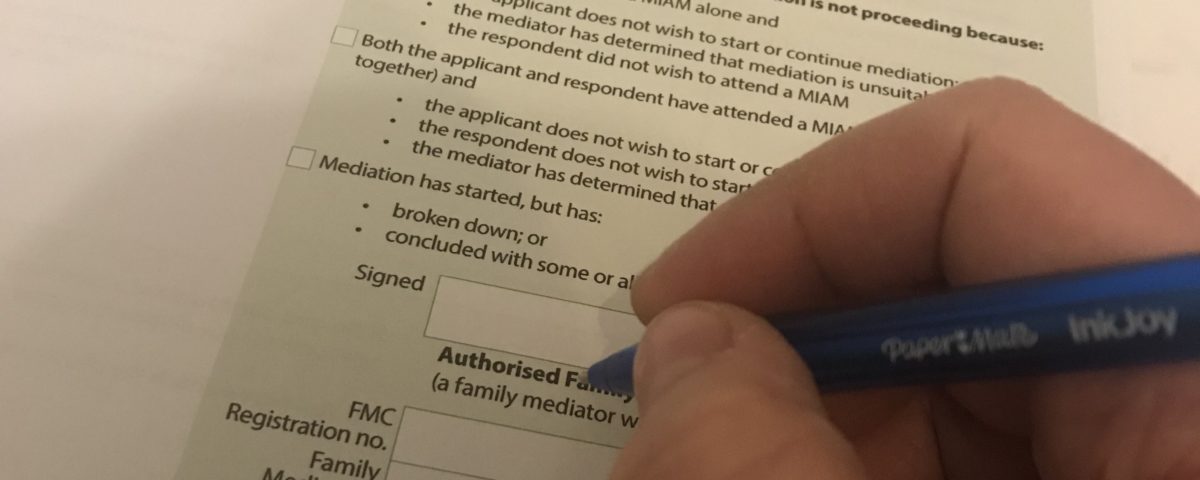MIAMs What to expect at a Mediation Information and Assessment Meeting
Mediation Information and Assessment Meetings mark a significant break in process if you intend to go to court. In 2014 the Ministry of Justice placed the MIAM meeting between the idea of court and the actual application requiring an accredited mediator to sign the application form.
Why we have MIAMs
The MIAM meeting gives the applicant the opportunity to take stock of what they are doing and test whether it is right for their family. Mediators find that when people find out about mediation they are willing to give it a try. Quite often, when a mediator contacts the other party and tells them that the other-side are willing to try mediation they are often keen to give it a go as well. No one wants to be seen as the unreasonable one. Sometimes when conflicts between couples escalate the thought of ‘backing-down’ and suggesting mediation seems a far away prospect but when couples have to have that break between conflict and court they are surprised how well it works.
What happens in a MIAM?
An authorised family mediator who is accredited will consider with you (and the other party if present) whether family mediation, or another form of non-court dispute resolution, would be a more appropriate alternative to court. The mediator will also be able to signpost you to other help and support services locally.
Trust your mediator
Accredited mediators are just that… they are mediators. They didn’t train to to just sign forms. They know that for most couples a bit of encouragement, creative thinking and support to confidently say what really matters to them, can resolve the disputes and settle the assets and finances. Mediators create a safe, calm and purposeful environment to help couples work towards settling their future. They help to create a partnership going forward where both people can see a separated future as positive and constructive. It is important that both people know that the mediator is working with both to solve the problems between then. Mediators don’t take sides but they will challenge what each persons says and help them to test the practical reality of what is proposed. All conversations are private and are confidential apart from the statutory exceptions.
New forms
The Family Court Forms have been updated and the mediator will need to know what applications you intend to make so the correct form can be signed.
You are now legally required to consider mediation before applying to the family court to resolve a dispute about your children or finances. This means that before submitting your application, you must attend a Mediation Information and Assessment Meeting to find out about mediation and see if mediators can help you sort out arrangements for the future.
In special circumstances – such as where domestic violence is involved – you may not need to attend a MIAM. However, you will be asked to provide the judge with evidence (such as a police report to prove domestic violence has taken place) and should take it to the first hearing.
How can mediation help?
Mediation gives you more control over what happens, and is usually less stressful and cheaper than going to court. It can also be quicker and less upsetting for you and your children. In the MIAM, you will be told about other options to resolve your dispute and about services that can provide you with help and support.
If you are thinking about making an application to court and need to have a MIAM please contact us to make an appointment.
We can often fit in a MIAM at very short notice. Our MIAM fee is just £110 inc VAT.
Smart people are willing to mediate.






